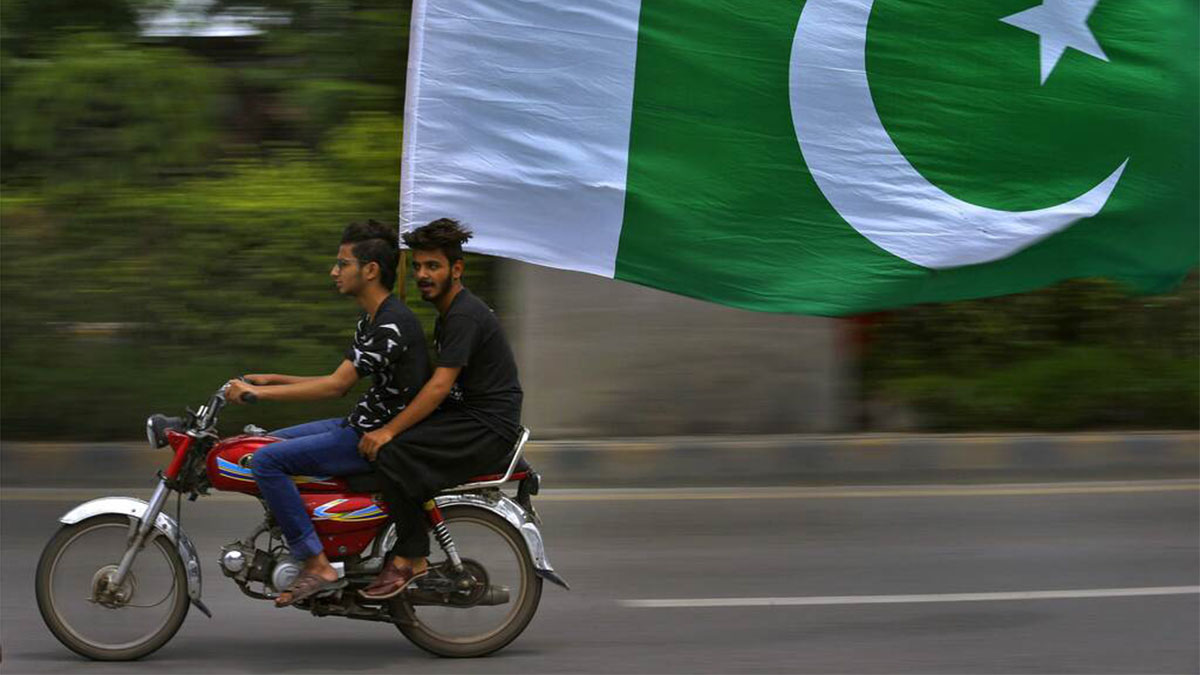Recent comments from Martin Raiser, the World Bank vice president for South Asia, have offered a hopeful outlook for Pakistan’s economy. He stated that if Pakistan adopts the right reforms and successfully implements its domestic recovery plan, it could become a trillion-dollar economy by 2035, with an annual growth rate of 7 per cent. While this sounds promising, the situation on the ground is more challenging.
Promised path to prosperity
According to Raiser, as reported by Geo TV, Pakistan’s long-term economic prospects are achievable. He highlighted that the World Bank is willing to commit $20 billion to Pakistan over the next decade, but this depends on Pakistan’s economic capacity and its ability to carry out necessary reforms. Raiser made it clear that reaching the ambitious growth target is possible, but it requires serious commitment to reforms in key sectors like energy, agriculture, manufacturing and digital infrastructure.
The World Bank’s $20 billion support, which is part of a broader 10-year plan, focusses on critical areas for sustainable growth. These include clean energy, climate resilience and private sector-driven growth—essential for creating jobs and ensuring long-term economic stability. However, the loan is conditional and it remains up to Pakistan to implement the policies needed to access this funding.
Grim reality of structural challenges
While the World Bank’s statements offer hope for Pakistan’s future, the country’s current economic situation paints a different picture. For years, Pakistan has been on the edge of a full-blown economic crisis, struggling with rising inflation, growing debt and an unsustainable fiscal imbalance.
The country’s economic growth dropped to just 2.4 per cent in 2023, well below the population growth rate of 2.6 per cent, which has worsened poverty levels. At the same time, MoneyControl reported that Pakistan’s weak tax collection—only 12 per cent of GDP—combined with unsustainable spending, remains a serious concern. The fiscal imbalance is widening and without significant changes to the country’s tax system and spending management these problems are unlikely to be fixed.
The World Bank recently cancelled a $500 million loan that was intended for sustainable energy projects. The loan was revoked after Pakistan failed to meet key conditions including necessary changes to power purchase agreements under the China-Pakistan Economic Corridor (CPEC). This cancellation, along with the World Bank’s decision to withhold new budget-support loans for the fiscal year, signals the institution’s reluctance to provide more aid without seeing meaningful reforms.
Impact Shorts
More ShortsReliance on bailouts: A vicious cycle
Pakistan’s economic dependence on external financial help, especially from the International Monetary Fund (IMF), has been a long-standing issue. Recently, the country secured its 25th bailout package from the IMF—a $7 billion aid package aimed at stabilising the economy.
However, despite this assistance, Pakistan continues to face deep-rooted structural problems, such as slow growth, high unemployment and a worsening brain drain. A concerning report from the International Labour Organisation shows the country’s increasing unemployment rate and estimates suggest that nearly one million workers have left Pakistan since 2008. This trend is expected to grow as job opportunities in the country become more limited.
The IMF bailout provides short-term relief but does not solve the core issues affecting Pakistan’s economy. The IMF’s plan focusses mainly on raising revenue through higher taxes and cutting subsidies, but it does not address the underlying problems of overspending and inefficient governance. More than 50 per cent of Pakistan’s annual budget goes toward interest payments, which worsens the country’s debt sustainability crisis.
Overreliance on China
One of the biggest concerns in Pakistan’s economy is its growing debt, especially its increasing dependence on loans from China. As per the latest data, China holds $23.6 billion in bilateral debt, which is more than the $20.1 billion Pakistan owes to the World Bank. These loans make up over 28 per cent of Pakistan’s external public debt. This heavy reliance on Chinese loans makes it harder for Pakistan to restructure its debt, as the country faces pressure from both the IMF’s strict conditions and China’s interest in keeping favourable loan terms.
The role of Chinese loans in Pakistan’s economic troubles became even clearer when the IMF urged Pakistan to stop offering tax incentives and subsidies to Chinese companies operating in special economic zones under the CPEC. This is a major blow for Pakistan, which had been counting on CPEC investments to boost its economy. With Chinese investments decreasing—from 25 per cent in 2023 to 22 per cent in 2024—the future of CPEC projects is now uncertain.
Question of long-term growth
While the IMF’s $7 billion bailout package may provide short-term stability, it’s uncertain whether it can trigger the long-term growth that Pakistan urgently needs. For real economic recovery, Pakistan must go beyond the IMF’s stabilising measures and focus on fixing its structural issues, such as reforms in the energy sector, boosting export capacity and diversifying its sources of foreign investment.
Additionally, Pakistan is yet to address its unsustainable debt that remains a major obstacle to long-term economic health.
The critical question is whether Pakistan can break free from its cycle of bailouts and achieve sustainable growth. The country must not only carry out the reforms suggested by the IMF but also create a clear, long-term plan for economic diversification, improving governance and managing its debt.
Hope or confidence?
The World Bank’s optimistic talk about Pakistan’s economic potential is encouraging, but the reality is much more complicated. While Pakistan does have capabilities that could lead to economic success, these opportunities are held back by a lack of political will, deeply rooted inefficiencies and a heavy reliance on external aid. Without a solid reform plan that addresses issues like fiscal mismanagement, structural inefficiencies and debt sustainability, Pakistan risks continuing on the same dangerous path of short-term fixes and long-term stagnation.


)

)
)
)
)
)
)
)
)



